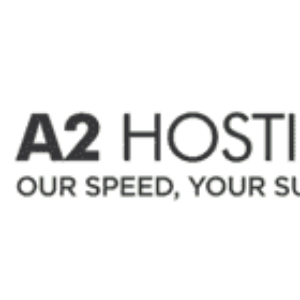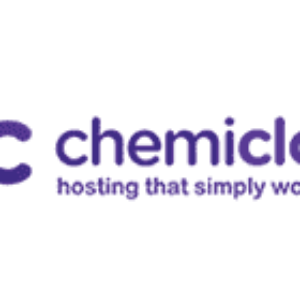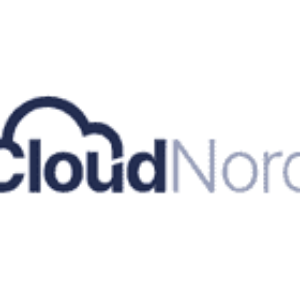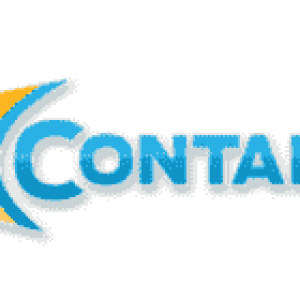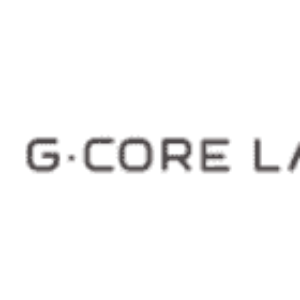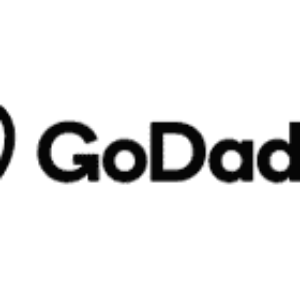Drupal Hosting
In today’s fast-paced digital landscape, the tools you use to build and maintain your online presence can make or break your business. Websites are no longer a luxury, but a necessity for anyone looking to establish a brand, connect with customers, or generate revenue. Among the myriad options for web hosting and content management systems (CMS), Drupal hosting stands out as a fast and reliable platform that offers immense flexibility and control over your website. Whether you’re a small business owner, a large enterprise, or a nonprofit organization, Drupal hosting can power your website with advanced features, robust security, and excellent scalability.
But what exactly is Drupal hosting? Why has it become such a sought-after solution for developers, businesses, and organizations around the world? In this comprehensive guide, we’ll walk you through everything you need to know about Drupal hosting, from its core features and benefits to how it compares with other CMS platforms like WordPress and Joomla. By the end of this article, you’ll understand why Drupal hosting could be the best choice for your next project, how to choose the right hosting provider, and the steps to ensure optimal performance for your Drupal website.
Why Choosing the Right CMS is Crucial for Your Business
Every website is built on a CMS, which acts as the backbone of your content and determines how you manage, publish, and organize your site’s resources. The decision of which CMS to use is not just technical—it’s strategic. The wrong choice can lead to inefficiencies, increased costs, or even security vulnerabilities, while the right platform can enable seamless growth, productivity, and a smooth user experience.
With the right CMS in place, businesses can streamline operations, maximize marketing strategies, and provide customers with an engaging online experience. Drupal hosting fits into this framework perfectly because it’s designed with scalability, security, and flexibility in mind. Let’s dive deeper into what makes Drupal hosting an optimal solution for high-traffic websites and complex web applications.
Understanding Drupal: More than Just a CMS
Drupal is more than just another CMS. It’s a powerful framework designed to handle complex websites and web applications. Released in 2001, Drupal has been steadily gaining popularity, particularly for large-scale websites like government portals, education institutions, and media organizations.
At its core, Drupal is a modular CMS, meaning you can build and customize it according to your unique requirements by adding or removing specific features, modules, and themes. What separates Drupal from other platforms like WordPress or Joomla is its flexibility, scalability, and customizability.
While platforms like WordPress may be easier for beginners, Drupal is aimed at users who need more control over their website’s structure, data management, and user interactions. In short, Drupal is ideal for websites that require a high level of customization, complex workflows, and multi-lingual support.
Key Features of Drupal
- Modularity: Drupal’s modular approach allows developers to integrate thousands of available modules to create bespoke functionality, from SEO tools to social media integration and advanced analytics.
- Taxonomy System: Drupal has one of the most powerful taxonomy systems, which makes categorizing, tagging, and organizing content simple and effective, no matter how complex the structure is.
- Scalability: From small blogs to enormous government websites, Drupal scales with your needs. As traffic increases, Drupal hosting adapts to accommodate growth without performance issues.
- Security: Drupal is known for its strong commitment to security, and its community of developers constantly monitors and updates the platform to ensure it meets stringent security standards.
- Community Support: The Drupal community is one of the largest and most active in the open-source world. This ensures a wealth of plugins, themes, modules, and help whenever you need it.
What is Drupal Hosting?
Drupal hosting refers to web hosting services specifically optimized for Drupal websites. These hosting platforms are designed to ensure that Drupal sites run as efficiently and securely as possible.
When you choose Drupal hosting, you get a server environment configured to meet the unique needs of Drupal sites, including advanced caching, database optimization, and server-level adjustments that make Drupal faster and more stable. Essentially, it means the hosting provider has built a system to enhance the performance of Drupal websites, which can be quite resource-intensive due to their complexity.
Why Choose Drupal Hosting?
- Enhanced Performance: A key benefit of Drupal hosting is the speed and performance optimizations that come out of the box. With specialized caching mechanisms like Memcached or Redis, Drupal hosting can dramatically reduce page load times, improve responsiveness, and boost user experience.
- Security and Updates: Drupal hosting platforms often include features like automatic updates, server-level firewalls, malware scanning, and SSL certificates. As a site admin, you can rest assured knowing your site is protected from malicious attacks and unauthorized access.
- Expert Support: Many Drupal hosting providers offer dedicated support teams with specialized knowledge of the Drupal CMS. This means faster resolutions and more effective troubleshooting, ensuring your website experiences minimal downtime.
- Scalability: Whether you’re launching a small business website or managing an enterprise-level eCommerce store, Drupal hosting scales to meet your needs. As your website grows, you can easily increase your hosting resources to handle more traffic and additional features.
Comparing Drupal Hosting to Other CMS Platforms
When deciding which CMS platform is best suited for your website, it’s important to compare Drupal with other popular platforms like WordPress and Joomla.
Drupal vs. WordPress
WordPress is the most popular CMS in the world, powering nearly 40% of all websites globally. It’s known for its simplicity, making it ideal for beginners and non-technical users. However, Drupal shines in areas where WordPress falls short, particularly in scalability and flexibility. Here’s a breakdown:
- Ease of Use: WordPress is undeniably easier to set up and use for basic blogs and websites. However, when it comes to building complex and custom sites, Drupal offers much more flexibility.
- Customization: While WordPress relies heavily on plugins to extend functionality, Drupal provides a more granular control over website elements. You can fully customize your site’s structure, permissions, and workflows.
- Security: Drupal is generally considered more secure than WordPress, which has a larger attack surface due to its wide adoption. Many government and enterprise websites choose Drupal because of its advanced security protocols.
Drupal vs. Joomla
Joomla sits somewhere between WordPress and Drupal in terms of ease of use and complexity. Here’s how Drupal stacks up against Joomla:
- Scalability: While Joomla is good for medium-sized websites, Drupal can handle large-scale projects with more ease, offering greater flexibility in terms of user roles, permissions, and workflows.
- SEO Capabilities: Both platforms offer good SEO support, but Drupal’s more advanced taxonomy system and customizable URLs give it an edge over Joomla for complex SEO structures.
- Community Support: While Joomla has a supportive community, the Drupal community is known for its active development and frequent updates, making it easier to stay up-to-date with security patches and new features.
Choosing the Right Drupal Hosting Provider
The performance and success of your Drupal website heavily depend on the hosting provider you choose. Not all hosting providers are created equal, and when it comes to Drupal, there are specific factors to consider to ensure you get the most out of your hosting experience.
1. Performance and Uptime
When selecting a Drupal hosting provider, the first thing to check is their uptime guarantee and performance metrics. Websites with poor uptime experience frequent downtimes, which negatively affect both SEO rankings and user experience.
Look for hosting providers that offer at least a 99.9% uptime guarantee and high-performance servers equipped with SSD storage, CDN integration, and load balancing to distribute traffic efficiently.
2. Scalability Options
Your website will likely grow over time, and you need a hosting provider that can scale with you. Drupal hosting providers should offer flexible plans that allow you to upgrade as your traffic increases or when you need additional resources.
3. Security Features
Security is critical for any website, and even more so for Drupal websites, which often handle sensitive data. Look for hosting providers that offer daily backups, malware protection, DDoS protection, and automatic security updates. A good Drupal hosting provider should also offer easy SSL certificate integration and regular security audits to keep your site safe.
4. Customer Support
As a Drupal site owner, you’ll want to work with a hosting provider that offers 24/7 customer support, preferably with experts who understand the intricacies of Drupal. Many top-tier hosting providers offer live chat, email support, and dedicated helpdesk resources for Drupal.
5. Cost and Value for Money
Finally, while price should not be the sole deciding factor, you’ll want to ensure that you’re getting the best value for your money. Choose a hosting provider that offers competitive pricing with no hidden fees and the best combination of features that suit your website’s needs.
Optimizing Your Drupal Website for Performance
Even with the best Drupal hosting, you need to ensure that your website is fully optimized to get the most out of the platform. Here are some tips to optimize your Drupal site for performance and speed:
1. Enable Caching
Drupal has built-in caching features that store static versions of your website’s pages. Enabling caching can dramatically improve the speed of your website by reducing server load and improving page load times.
2. Use a CDN
A Content Delivery Network (CDN) distributes your website’s static files (like images, CSS, and JavaScript) across multiple servers around the world, ensuring faster loading times for users no matter where they are located.
3. Optimize Images and Media Files
Large image and media files can slow down your website. Use tools like ImageMagick to compress images and ensure that media files are appropriately sized and optimized for web use.
4. Minify CSS and JavaScript
Minifying your CSS and JavaScript files can help reduce the size of these files, improving the speed at which they load. This also reduces the number of HTTP requests made by your site.
5. Monitor Website Performance
Regularly monitor your website’s performance using tools like Google PageSpeed Insights or GTmetrix. These tools provide valuable insights into your site’s speed and offer recommendations for improvements.
Drupal Hosting vs Shared Hosting: What’s the Difference?
One of the most common questions we hear is: “Why should I choose Drupal hosting over standard shared hosting?” While shared hosting might seem like an affordable and convenient option, it’s important to understand the critical differences between Drupal hosting and standard shared hosting, especially when it comes to performance, security, and scalability.
Performance: Optimized for Drupal’s Complex Structure
Drupal hosting is optimized specifically for Drupal websites, while shared hosting is a generic solution that aims to host a wide variety of website types on the same server. Drupal websites are often more complex due to their advanced features like content management workflows, user roles, and permissions. These features can slow down websites hosted on shared hosting because shared environments are not designed to handle the higher resource demands of Drupal.
With Drupal hosting, the server infrastructure is tailored to accommodate the CMS’s complexity, utilizing features such as caching (e.g., Varnish, Redis), database optimization, and faster PHP processing. This means your Drupal site runs smoother and loads faster, improving both the user experience and SEO rankings.
Security: Enhanced Protection for Your Drupal Website
Security is a major concern for any website, and Drupal hosting goes beyond the basic protection that shared hosting provides. In a shared hosting environment, multiple websites are hosted on the same server, which can leave your website vulnerable to cross-site contamination—an issue where security breaches on one website can affect others on the same server.
In contrast, Drupal hosting includes advanced security measures such as:
- Daily backups to protect your data.
- Automatic Drupal core updates to patch security vulnerabilities.
- Web Application Firewalls (WAFs) that filter and monitor HTTP requests to prevent malicious attacks.
- DDoS protection to defend against Distributed Denial of Service attacks.
This specialized approach ensures that your Drupal website is not only fast but also secure from cyber threats.
Scalability: Growing with Your Website
If your website is going to grow—whether in terms of traffic, content, or functionality—you need a hosting solution that can keep up. Shared hosting plans typically limit the resources you can use, such as bandwidth, CPU, and RAM, which can slow down your site or even cause it to crash during traffic spikes.
Drupal hosting, on the other hand, is designed with scalability in mind. Whether you’re adding more content, users, or features, Drupal hosting can handle the increased demand by allocating more server resources as needed. This flexibility is essential for growing businesses and organizations that expect to see traffic increase over time.
The Importance of Choosing a Managed Drupal Hosting Solution
When it comes to Drupal hosting, one of the most beneficial options is to choose a managed hosting provider. Managed hosting takes the stress out of website maintenance by providing a dedicated team of professionals to handle server configurations, updates, security patches, and backups.
Benefits of Managed Drupal Hosting
- Automatic Updates and Patching: Drupal is an open-source platform that receives frequent updates, including security patches and performance improvements. With a managed hosting solution, these updates are automatically applied, ensuring that your website is always running the latest, most secure version.
- Expert Technical Support: Managed hosting providers often have dedicated teams that specialize in Drupal. This means that if you ever encounter a problem with your site, you’ll have access to experts who understand the ins and outs of the platform and can offer quick, effective solutions.
- Performance Monitoring: Many managed Drupal hosting providers offer real-time performance monitoring, which means your website’s performance is constantly being tracked. This allows the hosting team to identify and resolve any performance bottlenecks before they affect your users.
- Customizable Server Environments: With managed Drupal hosting, you have more control over your server environment. This includes the ability to install specific modules, configure caching, and optimize your database for improved performance.
How to Migrate Your Existing Website to Drupal Hosting
Migrating a website to a new hosting provider can seem like a daunting task, especially if you’re moving from another CMS or shared hosting environment. However, most Drupal hosting providers offer migration services that simplify the process. Here’s a step-by-step guide on how to migrate your existing website to a Drupal hosting solution:
1. Choose the Right Hosting Provider
The first step is to select the right Drupal hosting provider based on your website’s needs. Look for providers that offer features such as automatic backups, 24/7 support, and performance optimization tools. Compare hosting plans to find the one that fits your budget while offering the necessary resources.
2. Backup Your Current Website
Before you begin the migration process, it’s crucial to create a full backup of your existing website. This includes both your website files and database. Most hosting providers offer backup tools or plugins to make this process easier. Be sure to store your backups in a safe location in case you need to revert to them later.
3. Install Drupal on the New Host
Once you’ve chosen your hosting provider, the next step is to install Drupal on the new server. Many Drupal hosting providers offer one-click installations, which simplify the setup process. If you’re comfortable with manual installation, you can also download the Drupal core files and upload them to your server via FTP.
4. Migrate Content and Database
After Drupal is installed, you’ll need to migrate your content and database. You can either do this manually by exporting your current database and importing it into Drupal, or you can use migration modules such as Migrate Plus to automate the process. Ensure that all of your content, media, and user accounts are correctly transferred to the new platform.
5. Test Your Website
Once the migration is complete, it’s important to thoroughly test your website to ensure everything is functioning as expected. Check for broken links, missing images, or any inconsistencies in content. Test the website speed and performance to confirm that your site is running optimally on the new server.
6. Update DNS Settings
Finally, update your DNS settings to point to the new Drupal hosting provider. This process can take up to 48 hours, but once it’s complete, your website will be fully migrated to its new hosting environment.
The Future of Drupal Hosting: Trends and Predictions
As the digital landscape continues to evolve, so too does the demand for powerful, scalable hosting solutions. Drupal hosting is no exception. With emerging technologies and changing user expectations, the future of Drupal hosting is set to include a range of exciting developments.
1. Cloud Hosting Integration
Cloud-based hosting is becoming increasingly popular, and Drupal is well-suited to take advantage of this trend. By leveraging cloud infrastructure, Drupal hosting providers can offer increased scalability, better performance, and reduced downtime. Expect to see more Drupal hosting providers offering cloud integration in the near future.
2. AI-Powered Optimizations
Artificial intelligence is making its way into the world of web hosting. In the future, Drupal hosting providers may use AI to analyze website performance data and automatically optimize settings for improved speed and resource allocation.
3. Enhanced Security Features
As cyber threats become more sophisticated, Drupal hosting providers will continue to invest in advanced security features. This includes AI-driven security tools, multi-factor authentication, and blockchain-based solutions to secure sensitive data.
Conclusion: Why Drupal Hosting is the Future of Scalable Websites
In conclusion, Drupal hosting offers a powerful, secure, and scalable platform for businesses and organizations of all sizes. Whether you’re building a small website or a large-scale enterprise portal, Drupal gives you the flexibility and control you need to manage complex data, workflows, and content management needs. With a reliable Drupal hosting provider, you can ensure that your website performs optimally, remains secure, and can scale as your business grows.
The choice of CMS is one of the most important decisions you’ll make for your online presence. Drupal hosting stands out because it is not only a fast and reliable platform but also because it allows unparalleled customization and scalability. As your business evolves, Drupal grows with you, making it an ideal long-term solution.
Are you ready to take your website to the next level with Drupal hosting? Now is the time to make the switch and experience the difference.
Frequently Asked Questions (FAQ)
- What is Drupal hosting, and how is it different from regular hosting?
- Drupal hosting is optimized specifically for Drupal websites, offering enhanced performance, security, and support tailored to Drupal’s needs.
- Is Drupal good for SEO?
- Yes, Drupal has advanced SEO capabilities, including customizable URL structures, taxonomy systems, and modules that enhance on-page SEO.
- Do I need to be a developer to use Drupal?
- While Drupal is more developer-focused than other CMS platforms, there are plenty of resources and user-friendly themes/modules to help non-developers manage a site.
- Is Drupal hosting expensive?
- Drupal hosting plans vary in price, but many providers offer competitive pricing based on the resources and features provided.
- Can Drupal handle high-traffic websites?
- Absolutely. Drupal is designed to scale with traffic, making it ideal for high-traffic websites.
- What makes Drupal more secure than WordPress?
- Drupal is known for its strong security features and is often chosen for government and enterprise websites that require a higher level of security.
- What are the key features of Drupal hosting?
- Key features include caching mechanisms, CDN integration, automatic updates, SSL certificates, and expert support for Drupal issues.
- Is Drupal hosting suitable for eCommerce?
- Yes, Drupal has powerful eCommerce modules that can handle product management, shopping carts, and secure payment processing.
- What kind of businesses use Drupal hosting?
- Businesses ranging from small startups to large enterprises, government websites, educational institutions, and nonprofits use Drupal hosting.
- How do I choose the right Drupal hosting provider?
- Consider factors such as performance, scalability, security, customer support, and cost when choosing a Drupal hosting provider.
Showing 1–12 of 22 results


